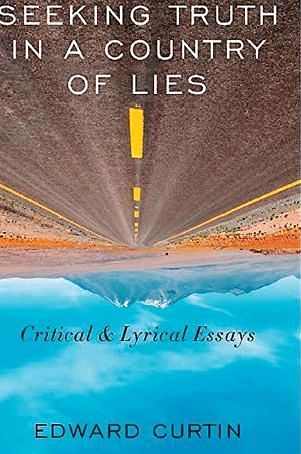Ever since I was a young boy, I have wondered why people do the kinds of work they do. I sensed early on that the economic system was a labyrinthine trap devised to imprison people in work they hated but needed for survival. It seemed like common sense to a child when you simply looked at and listened to the adults around you.
Karl Marx wasn’t necessary for understanding the nature of alienated labor; hearing adults declaim “Thank God It’s Friday” spoke volumes.
In my Bronx working class neighbourhood I saw people streaming to the subway in the mornings for their rides “into the city” and their forlorn trundles home in the evenings. It depressed me.
Yet I knew the goal was to “make it” and move away as one moved “up,” something that many did. I wondered why, when some people had options, they rarely considered the moral nature of the jobs they pursued.
And why did they not also consider the cost in life (time lost) in their occupations? Were money, status, and security the deciding factors in their choices? Was living reserved for weekends and vacations?
I gradually realised that some people, by dint of family encouragement and schooling, had opportunities that others never received. For the unlucky ones, work would remain a life of toil and woe in which the search for meaning in their jobs was often elusive.
Studs Terkel, in the introduction to his wonderful book of interviews, Working: People Talk About What They Do All Day and How They Feel About What They Do, puts it this way:
This book, being about work, is, by its very nature, about violence—to the spirit as well as to the body. It is about ulcers as well as accidents, about shouting matches as well as fistfights, about nervous breakdowns as well as kicking the dog around. It is, above all (or beneath all), about daily humiliations. To survive the day is triumph enough for the walking wounded among the great many of us.
Those words were confirmed for me when in the summer between high school and college I got a job through a relative’s auspices as a clerk for General Motors in Manhattan.
I dreaded taking it, being apprehensive of being cooped up for the first time in an office building while a summer of my youth passed me by, but the money was too good to turn down (always the bait), and I wanted to save as much as possible for college spending money.
So I bought a summer suit and joined the long line of trudgers going to and fro, down and up and out of the underground, adjusting our eyes to the darkness and light.
It was a summer from hell. My boredom was so intense it felt like solitary confinement. How, I kept wondering, can people do this? Yet for me it was temporary; for the others it was a life sentence. But if this were life, I thought, it was a living death.
All my co-workers looked forward to the mid-morning coffee wagon and lunch with a desperation so intense it was palpable. And then, as the minutes ticked away to 5 P.M., the agitated twitching that proceeded the mad rush to the elevators seemed to synchronize with the clock’s movements. We’re out of here!
On my last day, I was eating my lunch on a park bench in Central Park when a bird shat on my suit jacket. The stain was apt, for I felt I had spent my days defiling my true self, and so I resolved never to spend another day of my life working in an office building in a suit for a pernicious corporation. It’s a resolution I have kept.
Excerpt From: Edward Curtin’s “Seeking Truth in a Country of Lies.”







